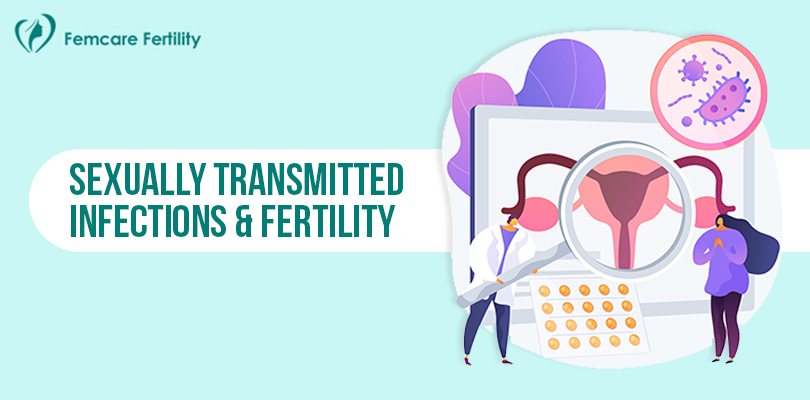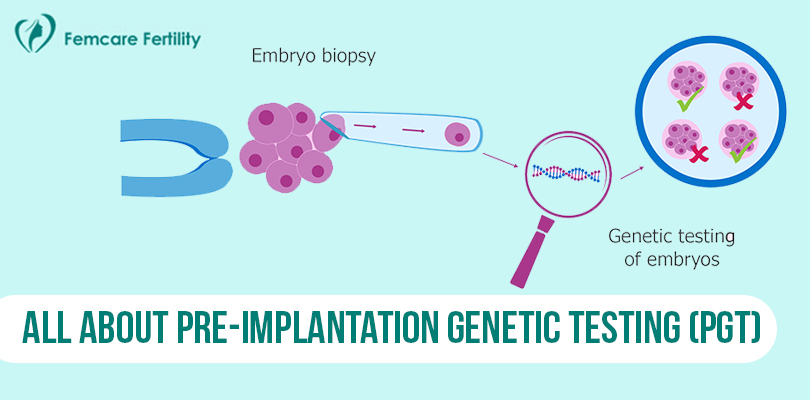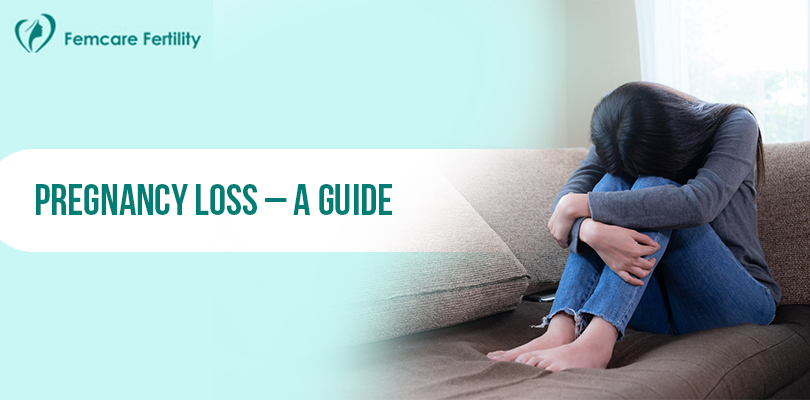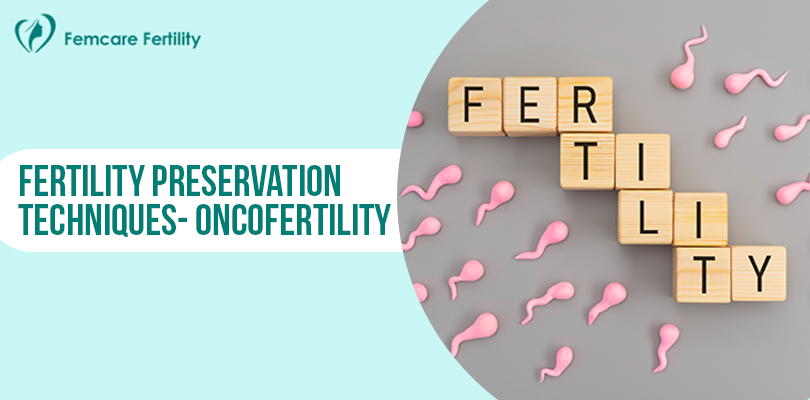The term “Infertility” is usually associated with the inability to have children and it loosely implies that the couple has not had any babies or pregnancies.
What a lot of people are unaware about is another type of infertility where the couple does have child(ren) without trouble but are unable to have another baby despite actively trying.
This type of infertility is called “secondary infertility”. It makes up for about 20-30% of infertility cases.
Diagnosis of secondary infertility comes as a shock and disbelief to the couple as there is a lot of unawareness and silence on such a concept.
Causes and Management:
Increased age of the females is one of the primary causes of secondary infertility.
As women age, their eggs age with them too and multiple egg follicles are lost with every cycle. This leads to fewer eggs which makes getting pregnant increasingly difficult at older ages.
With age, the chromosomes (genetic material) in the eggs also start accumulating errors leading to and less healthy (poor quality) eggs and higher risk of genetically abnormal children and miscarriages.
Sperm quality and number starts declining from 45 years of age for men. This can also lead to abnormalities and missed abortions. As men get older, they may also experience other sexual dysfunction leading to infertility.
Like with primary infertility, if the woman is <35 years and has been proactively trying for another baby for a year or a lady 35 and older trying for 6 months with no avail, should visit a fertility expert. For someone with a known underlying problem, unable to conceive should visit a doctor immediately. This helps in timely diagnosis and planning personalised management of the condition.
Pregnancy complications - Previous caesarean section delivery, ectopic pregnancy, D&C after miscarriage or surgery can sometimes cause scarring in the uterus. The scars can lead to blockage of the fallopian tube, endometriosis, inflammation and reduced implantation of the embryo, thereby hampering fertility.
Laparoscopic scar removal or breakage can reduce the effect of scarring on fertility.
Lifestyle changes - Smoking, gaining weight, too much alcohol/caffeine can cause sperm count & quality decline, development of PCOS, reduced egg reserves which negatively affect fertility.
Keeping lifestyle in check is known to have a positive impact on fertility. It may not cure the infertility, but it compliments other treatment methods used.
Other causes for secondary infertility are similar to those of primary infertility. At times, the issues may develop later in life or may already be present but worsen as years pass.
Fibroids: These are small masses in the uterus. If these grow into the uterus, they may affect implantation and fertility.
Fibroid removal surgery may help in some cases.
Sexually transmitted infections (STI) - If an STI is untreated, it could progress to pelvic inflammatory disease (PID). This causes scarring and blockage in the fallopian tubes which impairs normal passage of the egg, making pregnancy difficult.
Endometriosis - In this condition the endometrial tissue (tissue lining the uterus) starts growing outside the uterus covering the ovaries and fallopian tube, blocking them. It also bleeds monthly leading to inflammation, scarring and adhesions of the surrounding organs. Endometriosis is a progressive condition which may affect fertility over time.
Polycystic ovarian syndrome (PCOS) - It is now a very common condition in women in the reproductive age. Multiple egg follicles mature but become fluid filled cysts causing hormonal imbalance, ovulation problems, weight gain and infertility. Risk of diabetes also increases.
PCOS needs to be managed before planning pregnancies. This is done by lifestyle modifications like diet and weight control or hormonal treatments.
Illness or injury - Diabetes, high blood pressure, testicular injury, varicocele, cancer treatment can all have a negative effect on fertility.
Surgery for varicocele, freezing of sperms or eggs before planning cancer treatment can be considered.
Medications like anti-inflammatories, anti-depressants, blood pressure medicines or steroids are known to reduce fertility.
While planning, ask your doctor to prescribe alternatives to prevent infertility.
Unexplained - Like with primary infertility, there is a chance that cause for secondary infertility cannot be ascertained.
Other management options:
Ovulation induction - Medicines to improve or boost ovulation to increase number of eggs released and improve odds of pregnancy.
Intrauterine insemination - Ovulation induction followed by placing of sperms directly into the uterus to reduce the route of the sperms. Especially useful if there is a cervical issue.
In-vitro fertilization - Useful in cases of multiple failed IUIs or fallopian tube blockage due to scarring. Sperms and eggs are collected from both partners, fertilised outside the body in a petri- dish and the formed embryo put back into the mother’s uterus to grow.
Intra-cytoplasmic sperm injection is a modification of the IVF process wherein a single sperm is directly inserted into the egg to form the embryo.
Pre-implantation genetic diagnosis - In older women when the chance of chromosomal abnormalities in the fetus is higher, embryos created by IVF can be screened for the same before transferring into the mother. Only ones without abnormalities will be put in thereby reducing miscarriage risk and improving outcome.
Donor eggs - For older women who haven’t been able to conceive with their own eggs naturally
or through IVF can try using donor eggs from women who are younger with healthier eggs.
Egg freezing - This is becoming increasingly popular amongst young, career-oriented women. Ovulation can be inducted, eggs can be retrieved and frozen for future use, at young age when the number of eggs and their quality would be far superior. When the couple is ready to have a baby, they can use the woman’s own younger eggs.
Embryo freezing - If the couple has undergone previous IVF cycles with multiple embryos formed, they can opt for freezing the healthy embryos. These can be thawed and transferred into the woman’s womb when the couple wants subsequent children.
Surrogacy - If the woman has some medical condition where she cannot carry the baby, a surrogate is the good option. Embryos from own gametes or donor eggs can be created by IVF and transferred into the surrogate for a healthy pregnancy and baby.
The Emotional Turmoil:
It is always thought that having the first child is more difficult than consecutive children. However this is quite a misconception. Secondary infertility is touted to be more common than primary infertility. It is however not spoken about as much as it is not considered to be a problem.
It comes as a totally unexpected diagnosis for a couple who assume they are perfectly healthy and are doing everything right.
This leaves the couple confused, frustrated and helpless. There may even be pangs of jealousy seeing other people around them get pregnant but them. Guilt is another emotion couples feel – for not being able to give their child a sister or brother, not giving the existing child love & attention but instead struggling for another.
The society’s judgement and snide remarks over “why want another child, can’t you be happy with one ?” “There are couples struggling even to have one child, at least you have one to call your own”, does more harm than good.
There is severe lack of support for these couples in their close circle. So they shy away from opening up and have to keep going through their struggle alone.
But sharing your feelings with someone is key. There are professional counsellors, sensitive infertility specialists and support groups who can help you deal with these emotions, provide support as well as overcome the infertility. Don’t hesitate from seeking help and speaking up – you are not alone in this.
Not being able to have a baby after you’ve already had one is harder to accept and overcome. Femcare Fertility is here to help you with just that. The best infertility specialist and our best fertility center in Pune is at your service. We understand your turmoil and device plans and treatment to overcome this hurdle to give you the family you desire. Give Femcare fertility the first chance to help you with your second chance.






